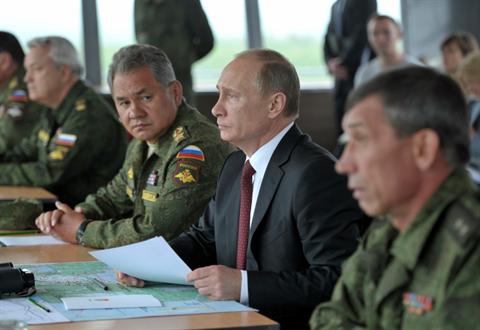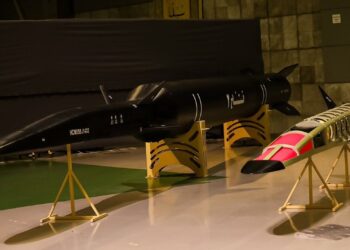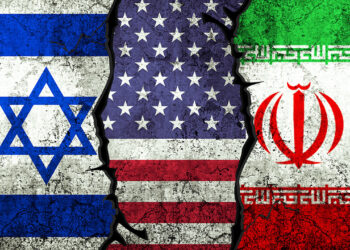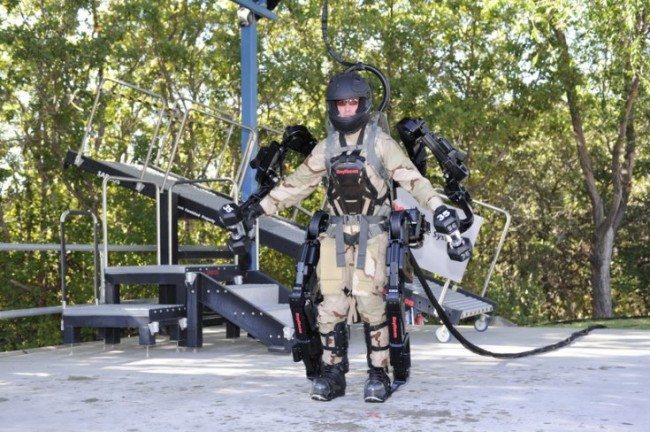A military doctrine is a theoretically substantiated and officially adopted long-term set of guidelines for the organizational development of the armed forces, use of military force and achievement of military objectives.
A military doctrine is subordinate to military policy, being its chief derivative. It is the scientific and practical baseline for developing military concepts, programs, plans and other official documents that extend and elaborate on its contents.
Russia’s military doctrine defines the political, strategic and economic foundations of its military security. It is one of Russia’s main strategic planning documents and a system of officially accepted views on provisions for the country’s armed defense.
The military doctrine is aimed at identifying and addressing Russia’s main threats. It is periodically revised to take into account geopolitical changes at home and abroad.
Before 1991, Russia, being a constituent republic of the USSR, was guided by the Soviet Union’s pronouncedly defensive military doctrine that was approved in 1987. This doctrine became null and void after the USSR’s disintegration.
Russia adopted the doctrine titled “The Main Premises of the Transition-Period Military Doctrine of the Russian Federation” in 1993.
It stated that Russia had no potential adversaries. Russia committed to avoiding the use of military force for anything other than self-defense. Nuclear weapons were regarded as a political deterrent rather than a means of warfare. The “reasonable sufficiency” principle guided the policies with regard to the country’s military potential that was to be maintained at a level commensurate with existing threats. The doctrine did not mention NATO at all.
However, NATO’s expansion and its operations in Yugoslavia in 1999 necessitated a number of adjustments to the doctrine.
The Russian Federation’s first comprehensive military doctrine was approved in 2000. It systematically and firmly described the contemporary military-political situation, its destabilizing factors and sources of threats, defining any buildup of forces by other states near Russia’s borders as “the main external threat.”
A new military doctrine was adopted in 2010, because the nature of threats to the country’s defense security had changed substantially in the years since its last revision.
The 2010 military doctrine is divided into four parts: Terminology and general provision; military threats and threats to Russia; the country’s military policy; military-economic support for national defense.
According to the doctrine, the likelihood of a large-scale war involving Russia has subsided, but military threats are growing in intensity in a number of sectors.
The main military threats listed in the document are the strengthening of NATO through the acceptance of new members, the deployment of anti-missile defense systems, aggravation of military-political tensions and exacerbation of interstate relations, as well as the creation of conditions for the use of military force.
The establishment and training of illegal armed groups, their operation in the Russian Federation or in the territory of its allies, are also classified as military threats to Russia. Such threats also include provocative demonstrations of military force in the form of military exercises held in states bordering Russia or its allies, intensified activities of armed forces of certain states or groups of states involving partial or full-scale mobilization and the conversion of these states” government and military command-and-control agencies to wartime operation.
The doctrine is aimed at the peaceful and nonviolent prevention and settlement of crises and conflicts. Russia is prepared to defend and uphold not only its own national interests and security, but also those of its allies.
The main distinction of this doctrine from its predecessor (2000) is that it allows the country’s armed forces to be deployed outside Russia’s borders in order to defend its interests and citizens, and to maintain international peace and security. The Russian president is empowered by law to decide on the use of the armed forces outside Russia.
The military doctrine emphasizes that nuclear weapons will remain an important deterrent against large-scale and regional wars. According to the document, “The Russian Federation reserves the right to use nuclear weapons in response to nuclear weapons and other types of mass destruction weapons being used against it and/or its allies, as well as in the case of a conventional aggression against the Russian Federation, which jeopardizes the very existence of the state.” This language is based on the principle of “defensive nuclear containment” and does not presuppose the delivery of a “preventive” or a “preemptive” nuclear strike.
According to the military doctrine, the main priorities for the development of the armed forces are the improvement of its air defense system and the creation of an aerospace defense system. Other priorities include improving the image of military service and better preparing Russian citizens for military service.
The country’s focus on defense-related military-economic efforts is possible because of the high level of financial and material-technical support given to the military to meet its targets.
A separate section of the doctrine is dedicated to the country’s military-industrial complex and yet another section concentrates on the Russian military’s political and technical cooperation with foreign states.
According to the doctrine, its provisions may be adjusted to take into account changes in the nature of military threats, military security and defense operations, and the state of the country’s development.
The military doctrine was amended in 2014, when new threats emerged, specifically NATO’s expansion in the direction of Russia’s borders and its plans to develop a global missile defense system and deploy strategic weapons in outer space.
On December 26, 2014, the Russian president endorsed the updated military doctrine.
Its main provisions remain the same, but there are new clauses on securing Russia’s interests in the Arctic and on allied relations with Abkhazia and South Ossetia. The new aspects of the military doctrine include defining operations by foreign private military companies in the vicinity of Russia’s borders as an external threat. The same applies to regimes established in neighboring states, whose policies threaten Russia’s interests, and to the subversive activities of foreign intelligence agencies or their coalitions against Russia.
The document notes that military is facing more domestic dangers and threats and is increasingly dealing with cyberwarfare threats.
Russia regards expanding the range of its partner states, including members of BRICS (a new element in the doctrine), CSTO, CIS, OSCE and SCO, as a move that will help to contain and prevent military conflicts.











